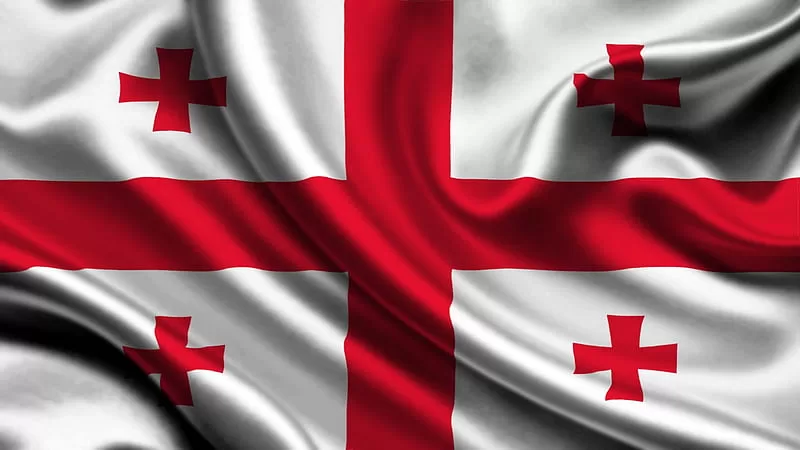Georgia Country Report

Georgia, located at the crossroads of Europe and Asia, is a country known for its rich history, diverse culture, and stunning landscapes. The capital city is Tbilisi. Georgia gained independence from the Soviet Union in 1991 and has since undergone significant political and economic transformations. The country has a parliamentary republic system of government, with a President as head of state and a Prime Minister as head of government.
Georgia’s economy is diverse, with key sectors including agriculture, tourism, and energy. The country is known for its wine production, historical sites such as the ancient city of Mtskheta, and natural wonders like the Caucasus Mountains and the Black Sea coast.
Despite progress in various areas, Georgia faces challenges such as territorial conflicts, economic disparities, and corruption. Efforts to strengthen democratic institutions, promote economic development, and enhance regional stability are ongoing priorities for the Georgian government.
Last updated: April 8, 2022
Security
Georgia faces security challenges ranging from unresolved territorial conflicts with Abkhazia and South Ossetia to issues such as organized crime and cybersecurity threats. Efforts to address these challenges include reforms to strengthen defense and law enforcement capabilities, as well as collaboration with international partners. Despite these challenges, Georgia remains committed to promoting regional stability and enhancing its security infrastructure.
Last updated: April 25, 2022
Infrastructure

Georgia has made significant investments in its infrastructure to support economic growth and development. The country boasts a well-developed transportation network, including modern highways, railways, ports, and airports, facilitating domestic and international connectivity. In the energy sector, Georgia has tapped into its hydropower potential, diversifying its energy sources and enhancing energy security. Additionally, Georgia’s strategic location along energy transit routes positions it as an important player in the region. Efforts to improve telecommunications infrastructure have also been prioritized, leading to increased access to high-speed internet and mobile services nationwide. Overall, Georgia’s infrastructure development initiatives play a vital role in driving economic progress, enhancing regional connectivity, and attracting investment opportunities.
Last updated: February 3, 2023
Environment

Georgia is renowned for its diverse and picturesque natural environment, encompassing rugged mountains, lush forests, and coastal landscapes along the Black Sea. The country’s rich biodiversity includes various plant and animal species, making it a haven for wildlife enthusiasts and nature lovers. However, Georgia faces environmental challenges, including deforestation, soil erosion, and pollution from industrial activities and urbanization. Climate change impacts such as changing precipitation patterns and extreme weather events also pose risks to Georgia’s ecosystems and agriculture.
Efforts to address environmental issues include initiatives to promote sustainable forestry practices, conservation of protected areas, and adoption of renewable energy sources. International cooperation and partnerships play a crucial role in addressing environmental challenges and preserving Georgia’s natural heritage for future generations.
Last updated: March 14, 2022
Health and Medical
Healthcare in Georgia has seen notable progress in recent years, yet challenges persist. The country’s healthcare system comprises both public and private providers, with urban areas generally having better access to services compared to rural regions. Georgia grapples with prevalent health issues such as non-communicable diseases and infectious illnesses. Efforts to bolster healthcare include reforms aimed at strengthening the system, expanding health insurance coverage, and enhancing primary care services. However, challenges such as healthcare access disparities, shortages of medical personnel, and limited funding remain. Despite these obstacles, ongoing efforts are underway to enhance the quality, accessibility, and affordability of healthcare services across the nation, with international cooperation playing a pivotal role in addressing public health challenges.
Last updated: September 6, 2022
Political
Georgia’s political landscape has evolved significantly since gaining independence from the Soviet Union in 1991. The country operates as a semi-presidential republic, with both a President and a Prime Minister sharing executive power. While Georgia has made strides towards democratic governance, challenges such as corruption, political polarization, and occasional instances of electoral irregularities persist. Additionally, the country faces ongoing territorial disputes with breakaway regions, namely Abkhazia and South Ossetia. Despite these challenges, Georgia remains committed to Euro-Atlantic integration, pursuing closer ties with Western institutions such as the European Union and NATO. Efforts to strengthen democratic institutions, improve governance, and address socio-economic disparities continue to be key priorities for the government and civil society alike.
Last updated: April 28, 2023















